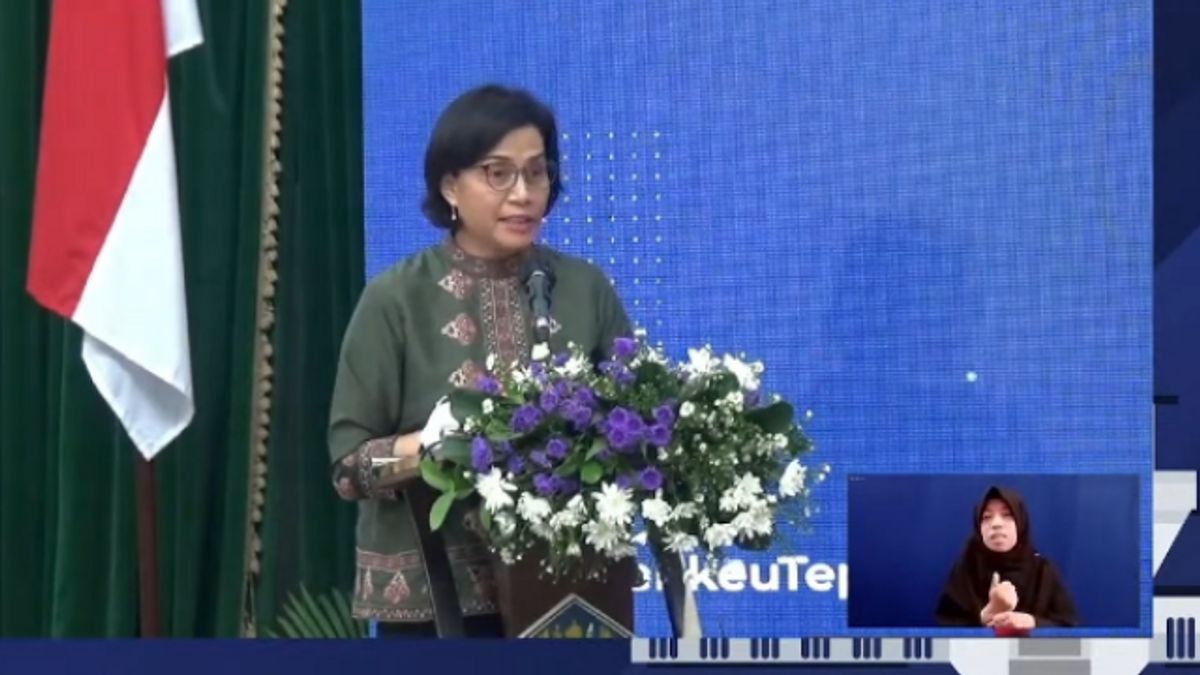JAKARTA - Minister of Finance Sri Mulyani Indrawati does not want the State Revenue and Expenditure Budget (APBN) to become a source of problems after dealing with COVID-19, as well as stabilizing social and economic conditions.
"The restructuring of the state budget is carried out in a measurable and gradual manner, the goal is for the community to recover, the economy to be strong again, and the state budget to be healthy again," said Sri Mulyani in the socialization of the Law on Harmonization of Tax Regulations to prominent taxpayers in the West Java region which was monitored online at Jakarta, Friday, December 17th.
For this reason, he said the government and the House of Representatives (DPR) jointly designed a tax reform contained in the Law on Harmonization of Tax Regulations (UU HPP).
The regulation is of course very important for the community, especially because the HPP Law is very supportive of the poor and MSMEs.
"So when we talk about taxes, people immediately feel this is a burden. Now, not anymore," said Sri Mulyani. She explained that the restructuring of the state budget will begin in 2022, after working extraordinarily hard since the pandemic hit in 2020 and 2021 so that the state budget deficit is increased to respectively to 6.14 percent (2020 BPK audit) and 5.7 percent (the 2021 APBN target).
However, the deficit in 2022 will be reduced to 4.85 percent of GDP because the widening of the deficit cannot be carried out continuously because it will cause an economic crisis.
"We have seen many countries experiencing this and we do not want Indonesia to be in that position," said Sri Mulyani.
The English, Chinese, Japanese, Arabic, and French versions are automatically generated by the AI. So there may still be inaccuracies in translating, please always see Indonesian as our main language. (system supported by DigitalSiber.id)








